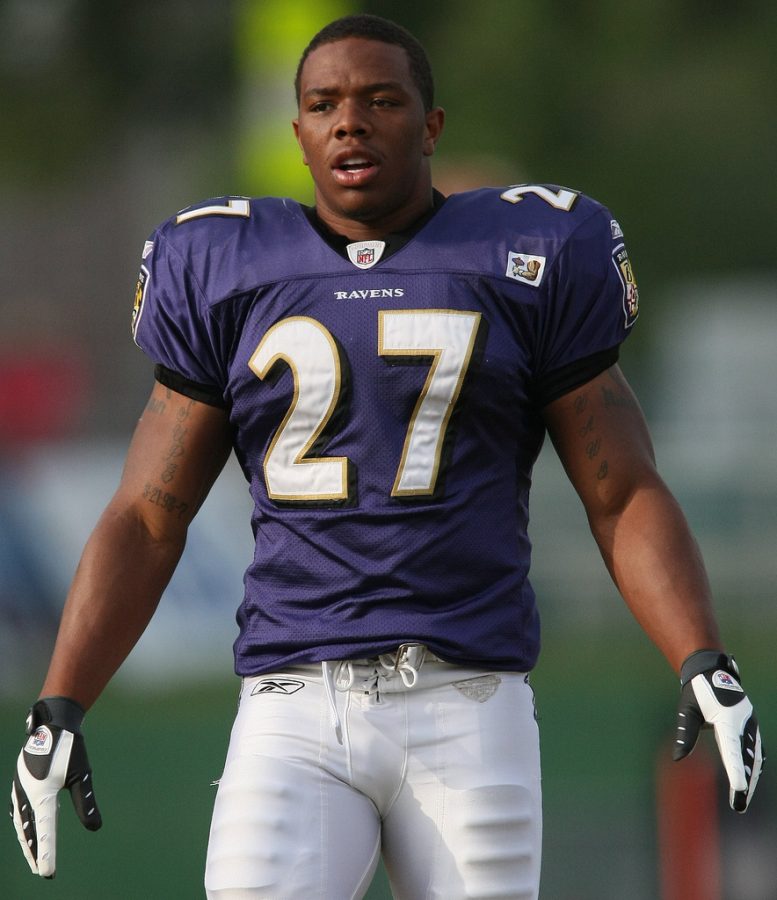On Friday, news broke that Kansas City Chiefs star running back Kareem Hunt was cut from the team, following his paid suspension from the NFL. The league’s decision came in response to a released video from February showing Hunt “knocking down” and kicking a woman in a Cleveland hotel. However, according to a statement from the Chief’s organization, the team’s decision to release Hunt was not due to video evidence of assault, and instead because “Kareem was not truthful” with management in internal discussions earlier this year regarding his altercation.
Putting aside the implausible fact that TMZ was able to obtain a copy of the video while NFL officials were not, the fact remains that the league and the Chiefs failed to take disciplinary action after the incident involving Hunt, 23, first came to light in February. This is also not the first time Hunt has been involved in a violent incident. In June, he reportedly punched a man in the face at a resort in Ohio, but no charges were filed.
Hunt’s case has joined a long list of questionable, often violent, incidents involving NFL players. Just a week ago, NFL linebacker Reuben Foster was arrested on a domestic violence charge in Tampa, Florida. The San Francisco 49ers released Foster from the team hours after the incident, but that didn’t stop the Washington Redskins from picking him up a mere three days after the news broke. The league has since placed Foster on paid administrative leave, meaning he will not be able to practice with the Redskins or participate in their games until the NFL makes a final disciplinary decision.
Since being drafted into the NFL last year, Foster was charged with felony domestic violence in April and was suspended without pay by the league for two games in relation to a weapons offense and a misdemeanor drug offense that were resolved earlier this year.
In recent years the NFL has faced backlash over the ways it has handled, or rather mishandled, domestic violence cases. In 2014, the league suspended Baltimore Ravens running back Ray Rice for two games for punching his then-fiancee Janay Palmer. Following intense criticism from the public, NFL commissioner Roger Goodell revised the league’s policy and increased Rice’s suspension to six games. A week later, TMZ released a video showing Rice physically assaulting Palmer, but Goodell said the NFL had not seen the new video. The parallels between the case of Ray Rice in 2014 and Kareem Hunt in 2018 are evident.
After the Ray Rice controversy, the league promised to change. Goodell introduced several new policies that included stiffer penalties, less reliance on law enforcement for guidance and a more capable investigative team at the NFL that includes former sex crimes prosecutor, Lisa Friel. But has anything really changed? The league’s punishments have not been sufficient nor consistent enough and as a result, the violence does not seem to be stopping. Since Ray Rice, there’s been Adrian Peterson, Greg Hardy, Ray McDonald, Josh Brown, Tyreek Hill, Ezekiel Elliot and LeSean McCoy, to name a few.
The litany of examples since at least 2014 demonstrate the NFL’s pattern of failing to take meaningful action, unless there is damning video footage and enough public outrage to go with it. By failing to properly investigate cases of assault involving their players and by allowing Commissioner Goodell to singlehandedly determine punishments, it seems that to the league officials and team owners, as long television ratings are up and their teams are winning, it is acceptable to excuse players’ actions off the field.
A version of this article appeared in the Monday, Dec. 3 print edition. Email Bela Kirpalani at [email protected].


























































































































































